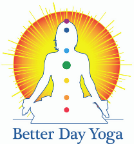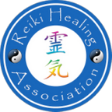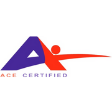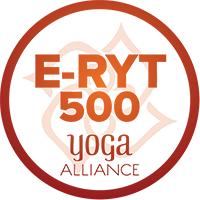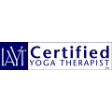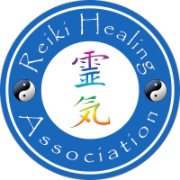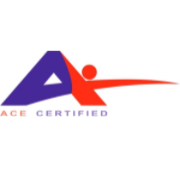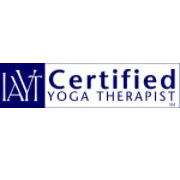What Is
Trauma Informed
Yoga?
Trauma-Informed Yoga
What is Trauma-Informed Yoga?
“Once you start approaching your body with curiosity rather than fear, everything shifts.”
~ Bessel Van Der Kolk, M.D.
Trauma-informed yoga is a somatic treatment that helps reset the nervous system, helps you reconnect with your body and regain a sense of control. This increases your capacity to be present in the here and now.
Learn more about trauma-informed yoga*.
How is Trauma-informed yoga different?
Transformational Language
The classes use transformational language encouraging the release of judgement, expectations, and competition. This invites people back into their bodies, not forcefully or demanding because only they can know when and where to feel more in the pose. If pushed too far, too fast, we can actually trigger the fight or flight mode.
Slower Mindful Movement
Slower mindful movement to awaken the emotional or limbic center of the mind combined with creating a safe space for the trauma survivor to heal.
Meditation & Imagery
Meditation and imagery are also used to balance the mind and body, creating a buffer of positive emotions.
Breathing Practices
Soothing/parasympathetic nervous system activating types of breathing practices to stimulate the vagus nerve. The vagus nerve stretches from the brainstem all the way into the belly, carrying incoming information from the nervous system to the brain. Literally the mind-body connection, it’s the cabling behind your “gut instincts”, governing things like the heart rate, digestion, sweating and skeletal muscles.
Grounding Postures
Physical focus on the psoas (the fight or flight muscle) and grounding postures to help release the allostatic load (wear and tear) of traumas stored in the body.
This class is for anyone looking to drop stress from their physical body and their minds to improve well-being and vitality.
According to the Centers for Disease Control and Prevention, potentially 25% of students in any yoga class have trauma in their history. This type of class is especially helpful for those suffering from trauma, stress, or anxiety, such as veterans or first responders.
My Trauma-informed Training Includes:
140-hour YogaFit® Warriors Program certification
Designed to address the stressors and traumas that are unique to our military community.
Mind Body Solutions Opening Yoga Levels I and II
An adaptive yoga training based upon the unique experience of Founder Matthew Sanford, an award-winning author, nationally renowned yoga teacher, and paraplegic since 1978.
Indu Arora’s Yoga Nidra 50-hour teacher training Level 1 and 50-hour Level 2 —This ancient practice has incredible relevance in the modern world. With an excess of tension and worries, discomforts and uneasiness, fears and phobias, Yoga Nidra is a vehicle to connect deeply to our true nature, to peace, health, and self-awareness. This was an in-depth dive into the history, origin, importance, and purpose of Yoga Nidra. We were blessed with deep discussions regarding the intelligence behind the sequencing, all the components of pre and post practices, the importance and formulation of the “Sankalpa/intention”, the role of imagery and visualization as well as contraindications. Level 2 further honed our skills as a teacher leading a Yoga Nidra practice. This Level 1 and Level 2 trainings are perfect complements to the YogaFit® Yoga Nidra training which I have also completed.
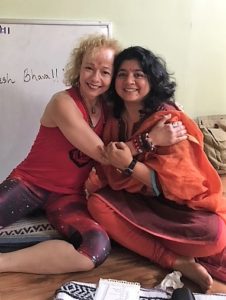
*Please know that I use the techniques learned in my training for trauma-informed yoga in all of my classes, but most especially in a “trauma-informed” yoga class.
Why Sandy Teaches Trauma-informed Yoga.
My parents were prisoners of war on German farms (forced labor) during WWII. My dad was taken from his home when he was 17, my mom was auctioned off to a German farmer. After the war, they met in a displaced persons camp in Germany—still prisoners—were married in that war camp, and had two children in that war camp. Most don’t know about this part of WWII history. Displaced persons were unwilling to return to their country of origin. The way my dad told it, there were regular attempts to trick them into signing papers saying they were willing to become communist and return to Poland.
Stories of the Past
I was the youngest of five. My two oldest siblings were born in the camp. I only knew the food supply was limited and an escape attempt could result in death, which didn’t stop my dad from leaving the camp one night to get more milk for his children—successfully unnoticed. The stories told to me were filtered through the lens of what you’d tell your child. It wasn’t until after my mom passed and dad remarried that I heard more details (told to me by my amazing step-mom) of sites seen and experiences you wouldn’t share with your children.
Sleeping Dragon
My parents and others like them buried their despair and their grief and moved on to a new life in the U.S. This is a common theme among WWII immigrants to the U.S. Their children learned to ask no questions. You were not to touch the sleeping dragon. They didn’t talk a lot about their time in the camp. We left it alone. Sometimes I wish I had asked more questions.
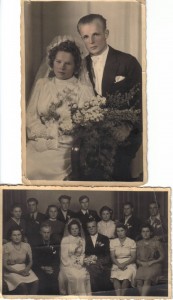
Mom and Dad’s wedding photos.The dress was made from a parachute, temporarily altered for each bride in the camp.
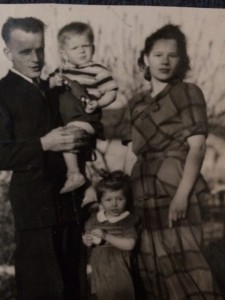
I believe this photo of Mom and Dad with George and Helen was taken shortly after arriving in the United States.
Taking Sides
My childhood was its own battleground of short tempers, lots of shouting and periods of unbearable silence with months of my parents not speaking to each other. During these times it was our childhood burden to decide where to be as the floor you chose was construed as taking sides with its inevitable repercussions. Too much time spent on any one floor resulted in backlash from the other parent. Ours was a volatile household−enough said.
My oldest brother (born in the camp) was also a purple heart honored Vietnam vet. I remember broaching the subject of PTSD with my dad suggesting it was perhaps something he and my brother had in common. He was in denial. They always had a rough relationship.
I’ve read that childhood trauma predisposes you to PTSD. I would suspect being born in a camp with limited food supply, traveling across the ocean on a boat with stressed out parents and being raised in a PTSD-ridden household qualifies. (The women and children were separated from the men on the boat from Poland to the United States. My mom ended up being bunked with a mom who was sea-sick and my mom then took care of four children instead of two for the duration of the trip.)
PTSD and DNA
“According to the new insights of behavioral epigenetics, traumatic experiences in our past, or in our recent ancestors’ past, leave molecular scars adhering to our DNA.” Poland’s tumultuous history certainly left scars on my ancestor’s DNA predisposing THEM to PTSD to be passed down to their children. “It seems that trauma or its effects are being passed down through our genes, and it has enormous consequences for us as a species.”
I suspect it was PTSD that contributed to the end of my brother’s marriage as well. When my brother passed he was not in touch with family—not for lack of trying on my part. (Another reference: Childhood Trauma Leads to Brains Wired for Fear)
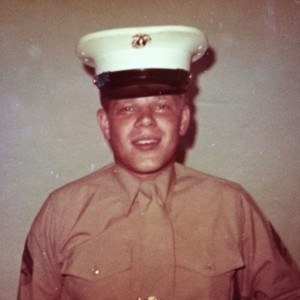
My Polaroid snapshot of my big brother
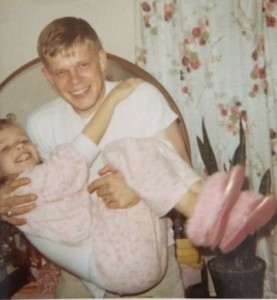
One of my favorite photos of my brother, George and I.
Understanding Trauma
It wasn’t until my YogaFit Warrior training that I fully realized my parents and my brother didn’t just have short tempers. I came to a deeper understanding of exactly how trauma gets stored in the body through the central nervous system. Needless to say, I wish I knew then what I know now as my heart fills with huge compassion.
Perfectly Normal Reactions
Their PTSD symptoms were perfectly normal reactions to perfectly abnormal events from their past. Knowing the stress and strain they dealt with both during and after their wartime experiences, and how frightened their subsequent panic attacks and uncontrollable short fuses must have left them, fills me with pride for the sheer willpower it must have taken to never give up. I am humbled by their lives. I am humbled by their courage to start over in a new country with two small children and how they not only survived, but prospered. This speaks to their strength.
George went on to work with autistic children. I know he was a blessing to many before he passed in 2009.
My eldest sister, Helen—also born in the camp, was like a second mom to me when I was growing up. Many times she was a much-needed buffer. I treasure her presence in my life and know I would not be the person I am today without having had her support and guidance.
Courage and Inner Strength
The courage and inner strength it took for my parents and all my Polish ancestors to rise above their violent history—holding onto their Polish heritage under threat of death—was not something I dwelled upon as a child of Polish immigrants who had been prisoners of war. My parents shared no bitterness for having had ten years of their lives stolen with the added humility of being held prisoners on farms and in war camps, their families ripped apart. While their silence was probably more a symptom of PTSD, I’ve come to view their lack of outward bitterness as a gift—albeit unintentional.
Meaningful Training
In the summer of 2015, I had the absolute honor of completing another overwhelmingly meaningful training by an amazing human being, Matthew Sanford: Mind Body Solutions Opening Yoga Levels I and II is an adaptive yoga training based upon the unique experience of Founder Matthew Sanford, an award-winning author, nationally renowned yoga teacher, and paraplegic since 1978.
mATTHEW’S STORY
In our first session, he asked us our reasons for participating in the training. Who were we trying to save? He was trying to save the 13-year old boy that awoke from the car accident which killed his father and sister, and paralyzed him from the chest down, changing his life forever.
It was at that moment I knew my burgeoning passion to teach all of my classes with trauma-informed sensitivity was my attempt to save the little girl being raised in a PTSD-ridden family with absolutely no understanding of what was happening.
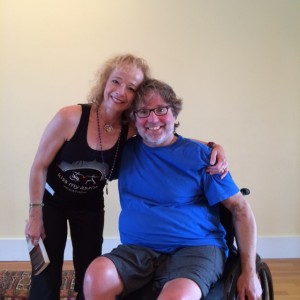
Curiosity Rather Than Fear
Trauma-informed yoga is a way to get to know yourself better than anyone else by approaching your body with curiosity rather than fear. Trauma-informed yoga enables you to really listen to your body’s messages, allowing you to make choices that increase your well-being. This type of yoga resonates with me. That’s why my trauma-informed yoga training infuses all of my classes. “It helps create a safe relationship with your body. It’s the breathing. It’s becoming safe to feel what you feel and to not run away from it. You learn to befriend your internal experience.” Bessel van der Kolk.
It would be my absolute honor to work with you. Please contact me if you are interested in a trauma-informed yoga class. I would be thrilled to be a part of your journey.
Contact Sandy HERE.
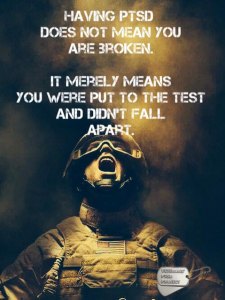
Veterans and PTSD
Two studies of veterans link PTSD to accelerated aging: “We’re seeing evidence, on multiple levels, of accelerated aging among very young veterans—people in their early 30s,…These could snowball into major health problems down the road.”
Studies show that “Metabolic syndrome is elevated among veterans, says Wolf, with an estimated 25 percent affected. That number may be as high as 40 percent among people with PTSD…and that metabolic syndrome was strongly associated with reduced cortical thickness.” The great news is meditation is correlated with cortical thickness and yoga is a “movement meditation”!
Female Veterans at Optimal Wellness Solutions Announcement
Notice: Trauma-informed yoga for female Veterans at Optimal Wellness Solutions (in partnership with the Women Veterans Initiative and Better Day Yoga) was suspended due to an unforeseen facility issue. Many of you had the opportunity to do yoga with me at the Taste of Wellness Retreat. Please send The Women Veterans Initiative a message HERE if you are interested in joining a future yoga class sponsored by this amazing group!
If you are interested in more information about Better Day Yoga’s Trauma-informed Yoga, please call us at (612) 708 6900 or drop us a line so we can connect!
Kind Words
“I haven’t found another yogi that has made my spirit feel so relaxed and refreshed. I literally become grounded and recharged spiritually.”
“Her fun, kind demeanor and clear experience in managing trauma and bodily pain make me feel comfortable recommending her here on my page.”
